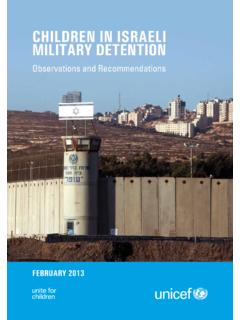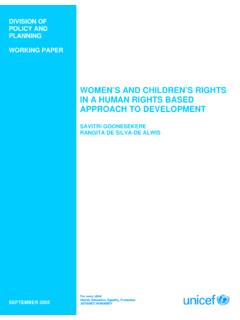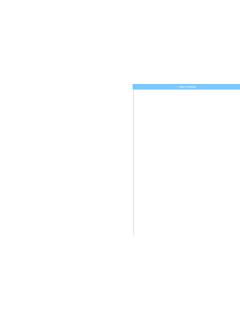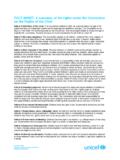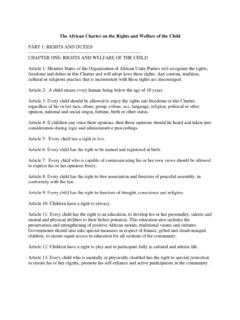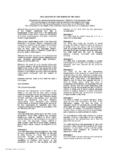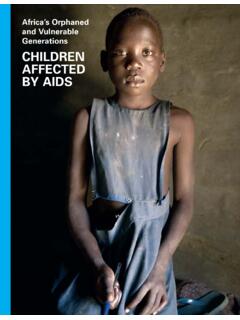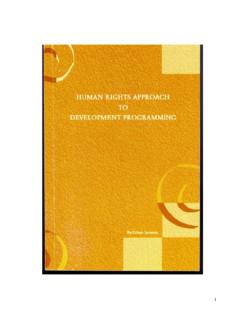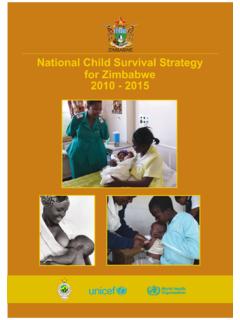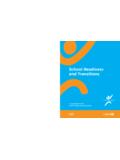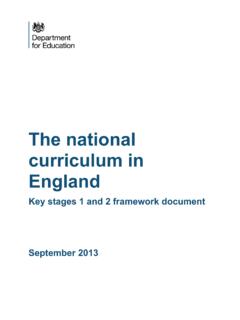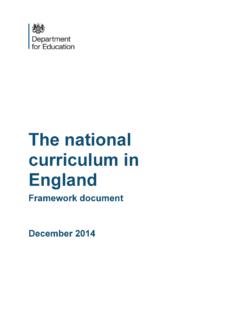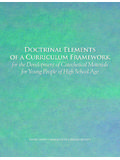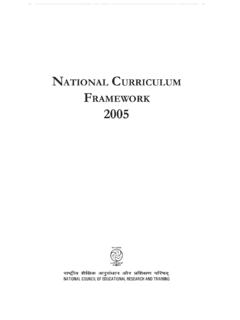Transcription of THE SOUTH AFRICAN NATIONAL CURRICULUM FRAMEWORK
1 Basic EducationDepartment:REPUBLIC OF SOUTH AFRICA basic educationTHE SOUTH AFRICAN NATIONAL CURRICULUM FRAMEWORK COMPREHENSIVE VERSIONFOR CHILDREN FROM BIRTH TO FOURThe SOUTH AFRICAN NATIONAL CURRICULUM FRAMEWORK for children from Birth to FourFebruary 2015 Department of Basic EducationAll care has been taken to ensure that the information is correct and original sources have been indicatedfor reference and verification. With an identification of the Department of Basic Education as source,the document may be freely quoted, reviewed, abstracted, reproduced and translated, in part or inwhole, but not for sale nor for use in conjunction with commercial purposes. Original sources should beacknowledged where indicated in the : 978-1-4315-2008-4 Suggested citation:Department of Basic Education.
2 2015. The SOUTH AFRICAN NATIONAL CURRICULUM FRAMEWORK for children fromBirth to Four. Pretoria: Department of Basic EducationObtainable free of charge from:Department of Basic Education222 Struben StreetPrivate Bag X895, Pretoria, 0001 Telephone: 0123573000 Fax: 0123230601 Website: : illustration: UNICEF/itldesignLayout: CTP Pretoria | Tel: 010 597 ..iiForeword- by the Minister of Basic Education, Mrs AM Motshekga, MP ..iiiIntroduction ..1 The vision for children in the early years ..2 Key ideas that shaped the NCF ..5 Principles informing the three themes which underpin the NCF ..7 The Early Learning and Development Areas ..8 Early Learning and Development Area One: Well-being.
3 16 Early Learning and Development Area Two: Identity and belonging ..31 Early Learning and Development Area Three: Communication ..40 Early Learning and Development Area Four: Exploring mathematics ..50 Early Learning and Development Area Five: Creativity ..57 Early Learning and Development Area Six: Knowledge and understanding of the world ..65 Assessment of each child s developmental needs and learning interests ..71 References ..81iiThe SOUTH AFRICAN NATIONAL CURRICULUM FRAMEWORK for children from Birth to Four TERMINOLOGYT erms used in the NATIONAL CURRICULUM FRAMEWORK for children from birth to four (NCF)Child / childrenrefers to all babies, toddlers and young children whatever their abilities, gender, background, language or cultureParentsrefers to the main caregiver of the childFamiliesrefers to the people with whom the child livesEarly Learning and Development Area (ELDA) refers to six organisers relevant to children: Well-being; Identity and Belonging; Communication; Exploring Mathematics; Creativity.
4 Knowledge and Understanding of the worldACKNOWLEDGEMENTSThe Department of Basic Education is most grateful to a range of stakeholders and individuals for their participation and involvement in the development of the NATIONAL CURRICULUM FRAMEWORK for children from birth to four (NCF). We would like to thank UNICEF for funding the development process of the document. Special thanks to Professor Hasina Ebrahim from the University of Free State and Margaret Irvine for the initial draft, as well as Dr Snoeks Desmond for the final edit of the comprehensive document and the development of the abridged versioniiiFOREWORD Delays in cognitive and overall development before schooling can often have long lasting and costly consequences for children, families and society.
5 The most effective and cost-efficient time to intervene is before birth and the early years of life. Investment in Early Childhood Development should be a key priority. NATIONAL Development Plan: Vision for 2030 (2011) Research shows that the first 1000 days (pre-birth, early and late infancy) of life are highly sensitive to environmental NATIONAL CURRICULUM FRAMEWORK for children birth to four years (NCF) is a response to challenges that the Early Childhood Development (ECD) sector is facing. The first step towards the development of the NCF was the development of the NATIONAL Early Learning Standards (NELDS) in 2009. The finalisation of the NCF was informed by consultative processes which included comments from the public.
6 These processes were used to shape and finalise the NCF comes at we are celebrating 20 years of democracy in our country and it is one of the activities aimed at improving the quality of basic education by laying a solid foundation in the early years. The development of the NCF is a great achievement for our country as it is the first document of its kind. This will ensure that children from different backgrounds in different settings have access to quality ECD NCF will be used in a variety of settings and purposes to improve children s learning experiences. It will also be used by training organisations, universities, practitioners, parents and other care-givers to enhance children s learning and AM Motshekga, MPMinister of Basic EducationBY THE MINISTER OF BASIC EDUCATION, MRS AM MOTSHEKGA, SOUTH AFRICAN NATIONAL CURRICULUM FRAMEWORK for children from Birth to Four The NATIONAL CURRICULUM FRAMEWORK (NCF) provides guidance for those developing programmes and working with babies, toddlers and young children from birth to age document is aimed at adults working with children from birth to four and includes.
7 Parents and caregivers Early childhood practitioners (in centres, family and community support services, child minders) Practitioner/educator and support staff Monitoring personnel (government and civil society) who visit the ECD can also assist in supporting older children (buddies) who offer child tochild ECD interventions in SOUTH need to work together to make meaning of and to apply the NCF through paying attention to high quality experiences for babies, toddlers and young children in a variety of programmes and settings such as ECD centres, homes, neighbourhoods and institutions where children in the early years are cared SOUTH Africa, as elsewhere in the world, there is an increasing drive to value and support the development and learning of children in the early years.
8 Research shows that the first 1000 days (pre-birth, early and late infancy) of life are highly sensitive to environmental effects. Evidence from research in SOUTH Africa shows that the early years are building blocks for health, human capacity, personal and social key feature that makes ECD programmes in SOUTH Africa different from other countries is the urgent need to effect social transformation through integrated care and education for our youngest children. This needs to happen because of: the history of apartheid; inequalities and conditions that place young children at risk; improve quality provisioning for children birth to four; the need to professionalise the workforce; and the need to promote a new vision for citizens in democratic SOUTH NCF promotes a holistic vision of ECD which pays attention to: The first 1000 days which are the windows of opportunities for interventions before birth and the first two years of life after birth.
9 And The third and fourth years of life and the time before the child enters primary school The NCF therefore focuses upon the child from before birth through to the time that she enters Grade NCF draws on the values in our constitution, the principles set out in existing legislation, policies and plans, review of SOUTH AFRICAN curricula for birth to four (Free State, Gauteng, Limpopo), the findings from the international literature on ECD, global imperatives for ECD and voices from the ECD field (through the stakeholder consultations carried out in SOUTH Africa). The NATIONAL Early Learning Standards (NELDS) form the foundation for the version2 THE VISION FOR CHILDRENIN THE EARLY YEARSThe NCF is driven by the following vision:Working with and for all children in the early years in a respectful way to provide them with quality experiences and equality of opportunities to achieve their full CURRICULUM frameworkA CURRICULUM FRAMEWORK is an organising tool which includes the knowledge and understanding of the world the practical skills required and the attitudes and behaviours needed to develop citizensAll of the knowledge, skills and behaviours which we need as human beings and citizens are described as competence.
10 Competent human beings and citizens have enough useful knowledge, useful skills and positive attitudes for living healthy, productive and happy NCF describes the competence that babies, toddlers and young children hope to and need to NCF describes the aims for children s development and learning which need to be used as guidelines for supporting children s holistic development and assessment of children s progress and potential. for adults who are facilitating children learning by planning high quality experience and by reflecting on and evaluating their content of NCF relating to children s development and learning is NOT TO BE USED IN A PRESCRIPTIVE WAY. It is a flexible tool to create opportunities for quality experiences for babies, toddlers and young NCF provides guidance on how to develop a CURRICULUM appropriate for babies and young CURRICULUM for early childhood is about all the experiences that children from birth to four will have in different settings.
